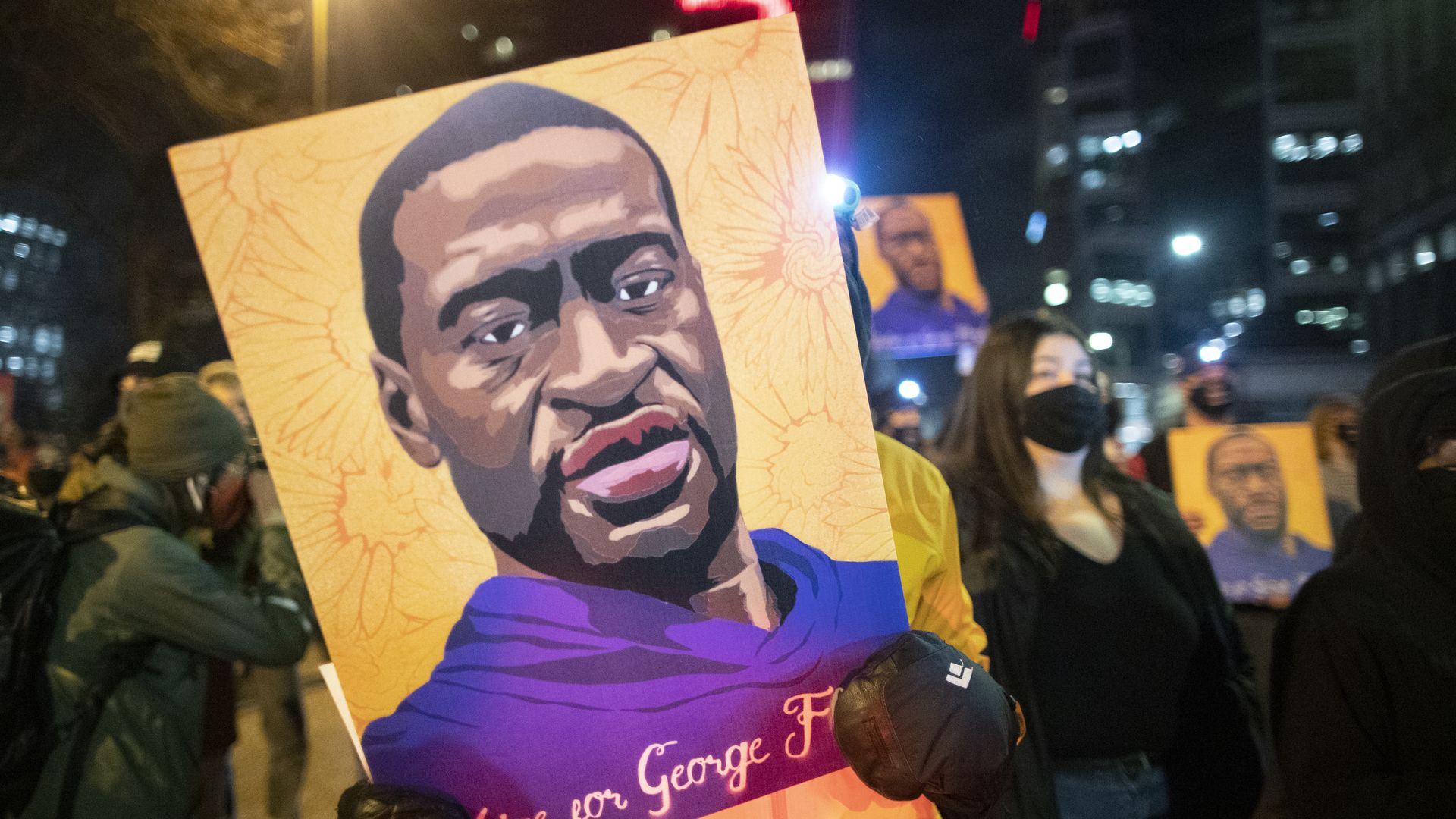Chauvin defense calls first witnesses as prosecution rests case
Add Axios as your preferred source to
see more of our stories on Google.

Protesters demand justice for George Floyd on April 9. Photo: Christopher Mark Juhn/Anadolu Agency via Getty Images
Former Minneapolis police officer Derek Chauvin's lawyers called their first witnesses on Tuesday, as the prosecution rested its case in a murder trial expected to hold closing arguments as early next week.
The state of play: The prosecution called dozens of witnesses in the trial's first 11 days to testify that Floyd died from a lack of oxygen due to police restraint, and not from the use of drugs or a pre-existing heart condition. On Tuesday morning, the defense sought to make a case for the latter.
The first witness called was Scott Creighton, a retired Minneapolis Police officer who was present during a May 2019 incident in which Floyd was arrested following a traffic stop.
- Creighton testified that Floyd was occasionally "mumbling" and "incoherent" during parts of the arrest.
- A 2019 video of the arrest showed Floyd complying with the officer's instructions, including to undo his seatbelt and put his hands where they were visible. The video showed that Floyd was able to speak, exit the vehicle, and stand next to the car.
The second witness was Michelle Monseng, a retired paramedic who examined Floyd after the May 2019 traffic stop.
- Monseng testified that Floyd admitted he had been taking opioids that day, and that he had hypertension but hadn't been taking his blood pressure medication for several months.
- Monseng also testified that Floyd was alert and responsive, with no nausea or vomiting, no respiratory distress, and a normal pulse and heart rhythm.
The third witness was Shawanda Hill, one of the passengers in George Floyd's car on the night he died in May 2020.
- She testified that when she ran into George Floyd at Cup Foods, he was "happy, normal, talking, alert."
- During cross-examination, Hill said that Floyd's behavior was sleepy but otherwise normal, and that he was "very" startled when a police officer pulled out his gun.
The fourth witness was Peter Chang, a Minneapolis Park Police officer who was the fifth officer on the scene the night Floyd died.
- Chang testified that the gathered crowd at the scene was "very aggressive," and that he was "concerned for the officers’ safety." He agreed during cross examination that Floyd did not seem threatening and was fairly peaceful when he arrived on the scene.
- Chang also acknowledged that he assumed the officers would be ok because there were four of them, and that they could call for backup if needed.
The fifth witness was Nicole MacKenzie, a Minneapolis Police medical support coordinator who had previously testified for the prosecution about first aid training at the MPD.
- She was questioned about "excited delirium," a medical condition that can be described as a combination of other conditions, including psychosis, agitated delirium, incoherent speech, hypothermia, and superhuman strength.
- She added that excited delirium can result from factors like cardiovascular disease, drug use, mental health issues.
During cross examination by the prosecution, MacKenzie testified that officers should put a patient experiencing delirium into a "side recovery position" to facilitate breathing.
- She added that it was not MPD's place to diagnose Floyd with excited delirium, and that she would defer to an emergency room doctor in such a case.
Go deeper:
